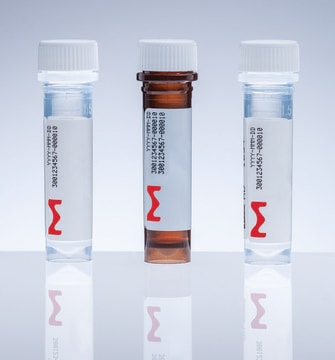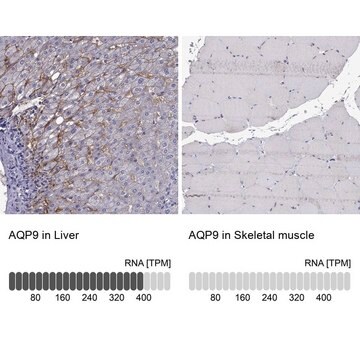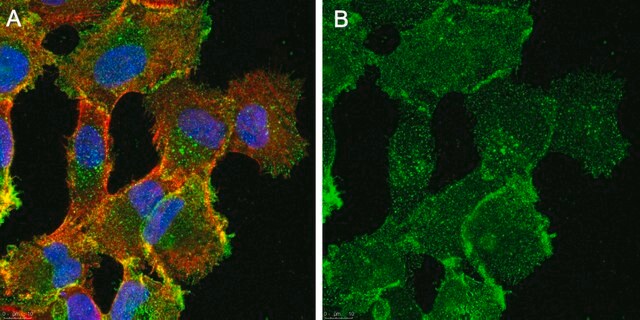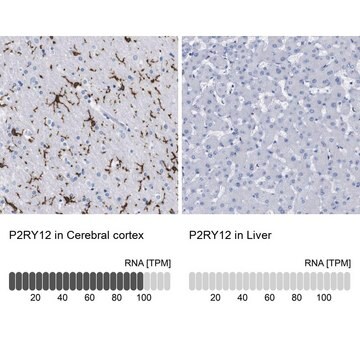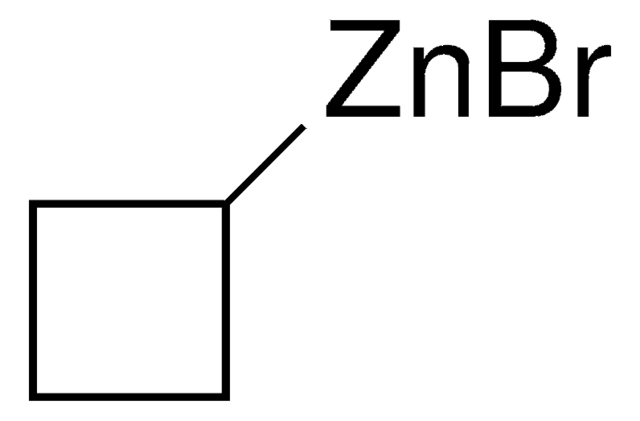AB3091
Anti-Aquaporin 9 Antibody
Chemicon®, from chicken
Synonym(s):
AQP9
About This Item
Recommended Products
biological source
chicken
Quality Level
antibody form
affinity purified immunoglobulin
antibody product type
primary antibodies
clone
polyclonal
purified by
affinity chromatography
species reactivity
rat
manufacturer/tradename
Chemicon®
technique(s)
ELISA: suitable
immunocytochemistry: suitable
immunohistochemistry: suitable
western blot: suitable
NCBI accession no.
UniProt accession no.
shipped in
dry ice
target post-translational modification
unmodified
Gene Information
rat ... Aqp9(65054)
General description
A new member of AQP family, Aquaporin-9 (AQP9), has been cloned from human leukocytes by homology cloning (Ishibashi et al. 1997). It is mostly homologous with AQP3 and AQP7 (54-48% identity). AQP9 (295 AA) is primarily expressed in peripheral leukocytes, and lesser amounts in liver, lung and spleen. AQP9 is permeable to water and urea. Unlike AQP3 and AQP7, it did not facilitate glycerol transport. AQP families of proteins are predicted to contain six transmembrane domains. The N and C-terminus are predicted to be cytoplasmic.
Specificity
Rat. The immunogen peptide has 94% conservation with mouse and 72% conservation with the human Aquaporin-9. Species reactivity has not been confirmed.
Immunogen
Application
Neuroscience
Ion Channels & Transporters
ELISA: 1:100,000 using 50-100 ng of control peptide per well.
Immunohisto/cytochemistry: We recommend using the affinity purified antibody at 2-10 μg/mL in paraformaldehyde fixed sections of tissues. Adherent cells can be fixed with 50% methanol-50% acetone or 1% paraformaldehyde.
Optimal working dilutions must be determined by end user.
Physical form
Storage and Stability
Avoid repeated freeze/thaw cycles.
Other Notes
Legal Information
Disclaimer
Not finding the right product?
Try our Product Selector Tool.
Storage Class Code
12 - Non Combustible Liquids
WGK
WGK 2
Flash Point(F)
Not applicable
Flash Point(C)
Not applicable
Certificates of Analysis (COA)
Search for Certificates of Analysis (COA) by entering the products Lot/Batch Number. Lot and Batch Numbers can be found on a product’s label following the words ‘Lot’ or ‘Batch’.
Already Own This Product?
Find documentation for the products that you have recently purchased in the Document Library.
Our team of scientists has experience in all areas of research including Life Science, Material Science, Chemical Synthesis, Chromatography, Analytical and many others.
Contact Technical Service